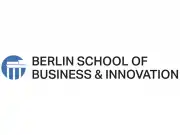Business programs in Germany
- Brief overview of Business programs in Germany
- Features of Business programs in Germany
- Advantages of Business programs in Germany
- Disadvantages of Business programs in Germany
- German universities offering Business programs
- Admission requirements for Business programs in Germany
- Documents for Business program applications in Germany
- Tuition fees for Business programs in Germany
- Scholarships and grants for Business programs in Germany
- Career prospects after Business programs in Germany
- Is it worth studying Business programs in Germany?
- Frequently Asked Questions

Bachelor of Arts - Global Economics and Management
Constructor University - Bremen, GermanyIn this globalized society, business decisions are influenced by a plethora of political, social, and cultural forces. To grasp these factors, students must first learn about the numerous obstacles that today's enterprises and economies confront. Resources scarcity, climate change, economic expansion,…

Bachelor of Arts - International Business Administration
Constructor University - Bremen, GermanyThe International Business Administration program focuses on all aspects of business and management with an international perspective. Students will gain strategic and practical views on creating value in a globalized, culturally diverse, and technologically driven environment. Topics covered include…

Bachelor of Science - Business and Management Studies
University of Europe for Applied Sciences - GermanyBusiness and Management at UE is an exciting, diverse, and globally relevant field. Digital modules, soft skills, and interdisciplinary teaching strengthen your vision and are central to UE's teaching.
Managers and leaders need entrepreneurial strategic thinking, social skills, and team…

Bachelor of Science - International Business Management
GISMA Business SchoolGisma University of Applied Sciences in Potsdam is a great place to immerse yourself in the exciting world of international business while making friends from all over the world. You will gain knowledge in all areas necessary for a prosperous business career, including international business law,…

Bachelor of Science - Business Management
GISMA Business SchoolIf you see yourself as a future business leader or entrepreneur, you might have a great concept for a firm or the desire and ability to use your leadership talents to take an existing business to the next level. Earning a bachelor's degree in business management provides you with the foundational…

Master of Science - International Business Management
University of Europe for Applied Sciences - GermanyOur Master's program in International Business Management prepares you for international management.
After completion, you'll have professional and organizational qualifications as well as social skills for a management career.
Your studies at UE are complemented by integrative…

Bachelor of Science - International Business and Management
Berlin School of Business and InnovationDegree awarded by University for the Creative Arts (UCA)
The international business and management course is an innovative program to form new global business leaders.
The course prepares graduates for today's global industries. Students will learn effective techniques…

Master of Arts - Innovation and Entrepreneurship
Berlin School of Business and InnovationDegree awarded by Concordia University Chicago
BSBI and Concordia University Chicago's MA in Innovation and Entrepreneurship (MAIE) helps students understand the challenges and opportunities of new business ventures and organizational change.
The MAIE teaches fast-paced,…

Master of Business Administration - Global MBA
GISMA Business SchoolLearn practical skills in areas including strategic decision making, operations and business control, value creation and protection, human resource management, and organizational design with an MBA from a school certified by the Association of MBAs (AMBA).
Earning this degree, which is recognized…

Master of Science - International Business Management
GISMA Business SchoolGisma Business School' Master of Science in International Business Management program introduces students to the exciting realm of multinational corporations and worldwide management.
This degree equips participants with the full range of business skills necessary for senior management in…
Brief overview of Business programs in Germany
Business education in Germany combines academic rigor, practical orientation, and international context. International students choose Germany for its high-quality specialist training, education affordability, and excellent career prospects. Bachelor's and master's programs cover various fields: management, international business, marketing, finance, entrepreneurship, and digital transformation.
Germany offers a wide choice of institutions - from public universities to private business schools. Students receive not only fundamental knowledge but also opportunities for internships, international projects, and research initiatives.
Features of Business programs in Germany
German business programs are distinguished by:
- International orientation. Many courses are taught in English, making them accessible to international students.
- Strong practical component. The curriculum includes case studies, company projects, business simulations, and internships.
- Integration of digital skills. Courses cover digital economy, innovation management, big data, and startup culture.
- Flexible study structure. Opportunity to combine studies with work (in dual studies format), participate in exchange programs, and create individual learning paths.
Some programs include mandatory internships at German or international companies, significantly improving employment chances in Europe.
Advantages of Business programs in Germany
Key benefits for international students:
- Education quality. German universities rank high internationally, and degrees are recognized worldwide.
- Affordable costs. Public universities offer free education or minimal semester fees (€100-350).
- Developed business environment. Germany is the largest EU economy, home to companies like Siemens, BMW, SAP, Deutsche Bank.
- International environment. Classrooms include students from worldwide, with teaching primarily in English.
- Career prospects. Graduates find jobs in Germany and other EU countries thanks to post-study job search programs (up to 18 months).
- Focus on sustainability and innovation. Modern programs cover ESG, digital transformation, ecological entrepreneurship.
Disadvantages of Business programs in Germany
Despite the advantages, there are certain challenges:
- Language barrier. While teaching is often in English, daily life requires German knowledge.
How to overcome: learn German beforehand, use university language courses or online resources. - High competition. Especially at top universities and for scholarship programs.
How to overcome: prepare documents early, improve academic performance, include motivation letters and recommendations. - High living costs. In major cities like Munich and Frankfurt, housing is expensive.
How to overcome: choose student dorms, apply for financial aid or scholarships. - Adaptation to the education system. Independence, academic freedom, and intensive schedules may be unfamiliar.
How to overcome: participate in orientation programs, seek support from tutors and advisors.
German universities offering Business programs
Below is a table with examples of universities and business schools:
| University / Business School | City | Programs | Language of Instruction |
|---|---|---|---|
| University of Mannheim | Mannheim | BSc/MSc in Business Administration | English/German |
| WHU – Otto Beisheim School of Management | Vallendar | Bachelor/Master in International Business | English |
| Ludwig Maximilian University of Munich (LMU) | Munich | Management, Economics | German/English |
| EBS Universität für Wirtschaft und Recht | Wiesbaden | BSc/MSc in Business, Finance | English |
| Frankfurt School of Finance & Management | Frankfurt | BSc/MSc in Business, Digital Innovation | English |
| Hochschule Bremen – International School of Business | Bremen | International Business | English |
Admission requirements for Business programs in Germany
Requirements vary depending on education level and university type:
For bachelor's:
- Secondary school diploma equivalent to German Abitur
- English proficiency certificate (IELTS 6.0+, TOEFL 80+) or German (TestDaF, DSH)
- Motivation letter and CV (if required)
For master's:
- Bachelor's degree in economics, business or related field
- Language certificates
- Recommendation letters, portfolio (sometimes)
- GMAT / GRE - optional but preferred
Documents for Business program applications in Germany
Required documents:
- Completed application form
- Certified copies of diplomas/degrees and transcripts
- Language certificate
- Motivation letter
- Resume (CV)
- Recommendation letters (1-2)
- Passport copy
- Photo
- Portfolio (for creative programs)
- Proof of application fee payment (if required)
Tuition fees for Business programs in Germany
At public universities:
- Tuition: Free (exception - Baden-Württemberg: €1500/semester for internationals)
- Semester fee: €100-350 (includes transit pass)
At private business schools:
- Tuition: €5,000-20,000 per year
Additional expenses:
- Accommodation: €300-800 per month
- Food, transport, insurance: €250-400 per month
- Insurance: about €110/month
Scholarships and grants for Business programs in Germany
Scholarship options for international students:
- DAAD (German Academic Exchange Service)
- Master's: from €850/month
- Includes insurance, travel, and German courses
- Erasmus+ Scholarships
- For exchange programs and joint master's
- Konrad Adenauer Foundation, Heinrich Böll Foundation
- For socially active students
- University scholarships (internal)
- Examples: WHU Excellence Scholarship, EBS Stipendium
Career prospects after Business programs in Germany
Business program graduates in Germany have competitive advantages in the international job market. Employment opportunities exist in private sector, international organizations, startups, consulting and audit firms.
Most in-demand fields:
- Consulting and audit: McKinsey, BCG, KPMG, EY, PwC
- Financial sector: Deutsche Bank, Allianz, Commerzbank
- Technology and digital business: SAP, Zalando, N26, Delivery Hero
- Manufacturing and industrial corporations: Siemens, Bosch, BMW, Bayer
- Logistics and e-commerce: DHL, Amazon Germany, Otto Group
- Entrepreneurship: many graduates start businesses in Germany with university incubator support
Salary levels:
- Entry-level: €40,000-55,000 per year
- After 3-5 years: €60,000-90,000
- In top fields (finance, consulting): €100,000+ with experience
International graduates can stay for 18 months to seek employment. With a job contract, they can obtain a work visa and later an EU Blue Card, simplifying the path to permanent residence.
Is it worth studying Business programs in Germany?
Certainly, business education in Germany is a strategically sound decision for both personal and professional growth. Here's why:
- Recognized degrees. German business programs are respected in Europe, Asia, North America.
- Practice-oriented education. Germany offers not just theory but industry connections through internships, projects, and dual programs.
- Affordability. Among Europe's lowest tuition fees while maintaining high quality.
- International career. Germany is the "gateway" to the European job market, with German+English opening doors to prestigious positions.
- Safety and high living standards. Students receive insurance, university support, and comfortable infrastructure.
If you're aiming for a career in business, finance, IT, or project management - studying in Germany can be an excellent start. The key is proper preparation, language learning, and taking advantage of opportunities the country offers.
Frequently Asked Questions
1. Is German language required for business programs in Germany?
No, many programs are taught entirely in English. However, German knowledge facilitates daily life and employment.
2. How much does education in Germany cost for international students?
Public universities are free or charge €1500/semester (in some states). Private universities cost more - from €5,000 per year.
3. Can students work while studying?
Yes, international students can work 120 full or 240 half days per year.
4. What documents are needed for application?
The list includes diploma/degree, language certificate, motivation letter, resume and other documents (see above).
5. Are there chances to get scholarships?
Yes, especially for master's. Scholarships are offered by DAAD, Erasmus+, foundations, and universities themselves.